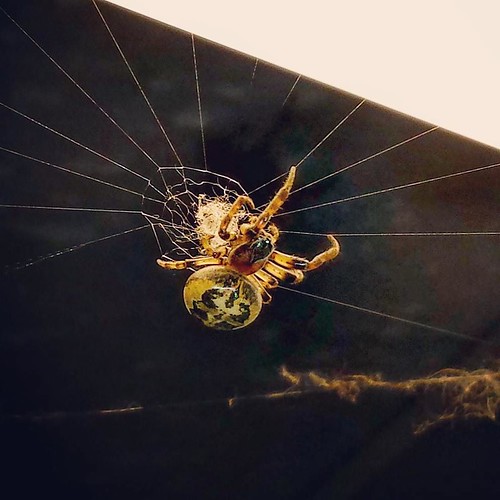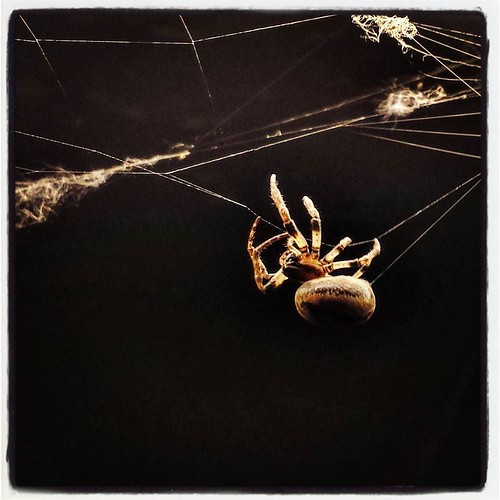Thursday, June 30, 2016
Something for Thursday
Sometimes you need perfection, and for that, you need Mozart.
Monday, June 27, 2016
"Always": On the conclusion of CASTLE
So Castle has ended.
Finally...mercifully...ended.
I would rather it left leaving me wanting more, but as the last weeks of this season ticked by, I found myself actually hoping for the show’s cancellation. When it came, I felt a keen sense of relief, because not only was Season 8 mostly disappointing (and occasionally downright bad), Season 9 was setting up to be awful. Stana Katic was actually released from the show for Season 9, if it happened, so we were actually going to have Castle without Kate Beckett, and that would have been ridiculous. Best to get the thing off the air now, when it’s still in “stuck around too long” territory and not in the “completely bottomed out” region.
So what the hell happened?
A number of things. The worst was that the show was handed off to its third set of showrunners for Season Eight, and these folks simply weren’t nearly as good a group of writers as the previous showrunners, and certainly not as good as they show’s creators. That’s a big thing. Writing is everything, and in the last season, Castle just didn’t have the goods.
For one thing, they felt the necessity of having another Major Story Arc, so they somehow managed to resuscitate the Beckett’s Mother’s Murder thing, which had been long put to bed. The story they cooked up didn’t so much reestablish that as a mystery, but they posited another bad guy out there who had it in for Beckett for some reason, someone so scary that he terrified Senator Bracken, the guy who had actually engineered Beckett’s mother’s death. This person, a shadowy figure known as ‘Loksat’, was up to...well, we have no idea. Maybe this was explained, but I couldn’t tell you what Loksat’s plot was if you held a gun to my head. Loksat was known in intelligence circles, and...well, it was a dull and convoluted story that was never involving at all.
And then there were the complications this story involved. For reasons beyond comprehension, the writers decided that it would be a good idea to have Beckett leave Castle because she had to keep him safe while pursuing Loksat (while still being a Police Captain), so we had half a year’s worth of bullshit stories that had Castle aggressively courting his own wife, who had left him for reasons she wouldn’t tell him, and so on and so forth. This led to an awful lot of terrible shenanigans, some of which made me wonder if Castle had become a detective-story version of Three’s Company. This was all terrible, terrible writing that treated the characters like plot-device caricatures.
Castle has not always been perfect – case in point – but it was never this bad, either. Lots of folks attribute this to the fabled “Moonlighting Curse”, in which the sexual tension is the main driver of story and once you get rid of it, your story goes up in smoke. That might have been true with respect to Moonlighting, which was (let’s be honest) a shitty show in which the sexual tension was the only interesting thing about the characters, but that’s not some holy law carved in stone as many seem to think. There’s no fundamental law of storytelling that says that as soon as Castle and Beckett got married their status as an interesting couple had to be doomed, and the frustrating thing about the way it all unfolded is that the writers actually had a couple of interesting ideas but still screwed them up.
When Beckett “separated” from Castle, it further meant that he couldn’t hang out at the precinct and help the police solve cases. The writers solved this by having Castle become a licensed private investigator, and he took on his daughter Alexis as an assistant. This was actually a great idea, and would have been easily set up without the stupid bit about the separation: since Castle’s original permission to follow the precinct detectives came via his friendship with the mayor of NYC, simply posit that now there’s a new mayor who doesn’t like Castle, and boom! Problem solved! But no, instead the writers had Castle using his PI business as a way to “court” his own wife. This was a good idea whose execution was painful to watch.
Also painful was the use, then non-use, then use-again, of Castle’s father’s status as some kind of superspy. We never saw his father, but his new stepmother showed up just to help with the exposition of Loksat. That’s all that was ever done with any of that, except for referring to it in the context of Castle’s three-month disappearance a season or two ago (a very lame development in itself, which was the first canary-in-the-coal-mine incident that the show’s writers at that time were running low on ideas).
There were interesting episodes here and there in Season Eight, but on the whole, Castle went out on a deeply disappointing and silly note. Alas...there really could have been an interesting show spun out of two married detectives solving crimes. Castle could have morphed into an updated Hart to Hart, for example, or it could have done more with its occasional delving from murder mystery into spy fiction. Alas indeed. ‘Twas not to be.
Oh well. Castle still gave us four terrific seasons, a couple more decent seasons, then one “meh” season and finally a bad one. That’s more than we get from a lot of shows, and eventually I look forward to rewatching those earlier years. So many wonderful moments on this show, and I’ll always appreciate the way Castle managed to set a murder mystery show in New York City without also making NYC look like a horrible place of awful violence where only the crazy go. At its best, Castle was a witty and smart show that used its main character’s status as a writer to wink at the audience about the very tropes of storytelling that it was using. It was also a show with a very fine supporting cast, and a lot of great chemistry all the way around. It was fun and beautiful to look at and it had nifty premises and it gave me one of my favorite teevee literary jokes ever, when a guy survived being shot by virtue of the bullet encountering the copy of Brothers Karamazov in his jacket's inside pocket, leading Detective Ryan to quip, "Good thing this guy likes Russian lit; if he's a Nicholas Sparks fan, he's dead right now."
I plan to give the show a year or so to get the taste of Season 8 out of my mouth, and then? I might start rewatching it. The first five or six seasons, anyway. Because, you know.
Always.
Saturday, June 25, 2016
Symphony Saturday
Peter Ilyich Tchaikovsky.
I've always had a difficult relationship with Tchaikovsky, but over the last few years, I find myself more and more attuned to him. His famous Piano Concerto No. 1 remains a work that vexes the hell out of me, but I like parts of it enough to outweigh the things I find difficult in it; the 1812 Overture and the Capriccio Italien remain fun potboilers, even if the former is really twice as long as it needs to be. Tchaikovsky's symphonies, though? Well, even there I've always had trouble. For one thing, even though he wrote six total, it's the last three that show up on frequent programs; in fact, until I did listening for this post, I'd never even heard the first three. I disliked the Fourth for years (only now changing my opinion), and the Sixth was nice but didn't really do a whole lot for me. (I've yet to relisten to it for this series, but I'm looking forward to it.) What started my transition on Tchaikovsky (whose ballet music I have always loved) was the Fifth Symphony, which I've always liked and which a few years ago grabbed my heart in a way that few works ever have...but we'll get to that.
Tchaikovsky was the consummate tortured Russian Romantic who poured the struggles of his soul into his art. His life was one of constant turmoil, and his relationships were stormy and too often ended in death or, in the case of his patron Nadezhda von Meck, the enigmatic and sudden ending of the relationship with no real explanation. Tchaikovsky was also homosexual at a time when that was not a thing to be, and some think that his death -- from cholera which resulted from his drinking unboiled water during an epidemic -- was at least partly suicidal.
From all this arose some of the most enduring and popular works of classical music ever written, including the last three symphonies. The first three, however, are interesting and fine works in their own right, so I decided to go ahead and just include them all in the course of this series. That's partly why I took a break from these posts for two weeks: I had catchup listening to do!
So, what of Tchaikovsky's Symphony No. 1? It was his first (obviously) real foray into the world of large-scale symphonic works, which he began composing shortly after entering conservatory. As a youthful work, it does show some signs of inexperience at times, but Tchaikovsky's gift for soaring, singing melody is evident early on, and there are some very interesting uses of orchestral color as well. (Russian composers always seem to know how to use the orchestra in the most amazing ways.)
Tchaikovsky's work on the symphony was not easy, though. Here's a brief account, from Wikipedia:
Tchaikovsky started writing this symphony in March 1866. Work proved sluggish. A scathing review by César Cui of the cantata he had written as a graduation piece from the St. Petersburg Conservatory shattered his morale. He also composed day and night. All these factors strained Tchaikovsky's mental and physical health tremendously. He started suffering from insomnia, from pains in his head which he thought to be strokes, and became convinced he would not live to finish the symphony.[5] A successful performance of his revised Overture in F in St. Petersburg lifted his spirits. So did a change of scene for the summer with his family. Nevertheless, he soon worked himself again into nervous and physical exhaustion by continuing to compose day and night. A doctor declared him "one step away from insanity," ordering complete rest. Tchaikovsky complied.
Ouch. Tchaikovsky was also handicapped by teachers who criticized the work heavily for its awkward use of the traditional rules of sonata-allegro form, rules which Tchaikovsky felt too constrictive for his own natural abilities as a composer. Still, he finished the symphony, and now, hearing it recently for the first time -- yes, it's youthful. No, it's not the equal of what was to come. But it's still a fine work that I'm glad to have finally heard!
Here is Tchaikovsky's Symphony No. 1 in G minor, titled "Winter Dreams".
Next week, the Symphony No. 2 (which, as of this writing, I still haven't heard!).
Friday, June 24, 2016
Bad Joke Friday
I bought a pair of shoes from a drug dealer. I don't know what he laced them with, but I've been tripping all day!
Thursday, June 23, 2016
Something for Thursday
Yes, I know you said that you didn't want to listen to some showtunes sung by a big operatic baritone, but you're wrong. Here's Bryn Terfel!
Tuesday, June 21, 2016
A shark runs though the river....
I thought I'd make a meme-thing. It's below the jump, because it contains a naughty word.
Monday, June 20, 2016
Animal Adventures
Here's what happens when one cat gets to go outside on a supervised jaunt, leaving his brother and the dog behind:

Here's what happens when the dog is waiting for me to finish my morning writing and take him out:

Here's what happens when I wake up the other cat from his nap:

Here's what it looks like when the dog is not cooperative for his photo-op:

Here's what happens on a lazy weekend morning:

Here's what happens when we're at the park and the dog get hot and finds some water:

And here's what happens when the dog actually cooperates for his photo-op.


Here's what happens when the dog is waiting for me to finish my morning writing and take him out:

Here's what happens when I wake up the other cat from his nap:

Here's what it looks like when the dog is not cooperative for his photo-op:

Here's what happens on a lazy weekend morning:

Here's what happens when we're at the park and the dog get hot and finds some water:

And here's what happens when the dog actually cooperates for his photo-op.

Saturday, June 18, 2016
Symphony Saturday (holding pattern edition)
Sorry to miss this feature the last couple of weeks! There's a reason for that, though: I was finally going to address the symphonies of Peter Ilyich Tchaikovsky, but just the last three, which are among the greatest symphonies ever written. But then I figured, I've never actually heard his first three symphonies, so I wanted to hear them first before I blogged about them. So starting next week, six weeks of Tchaikovsky!
In the meantime, we'll back up a hundred years. Here's Mozart's Symphony No. 25 in G minor.
In the meantime, we'll back up a hundred years. Here's Mozart's Symphony No. 25 in G minor.
Friday, June 17, 2016
Bad Joke Friday
A video delivery this time! Courtesy The West Wing.
Thursday, June 16, 2016
Something for Thursday
Today a brief suite from Elmer Bernstein's score to the film Far From Heaven, a movie which seems to have dropped somewhat off the radar unfortunately. Bernstein died not long afterwards, following one of the great careers in film scoring. For this film Bernstein really captured the story's sense of elegiac sadness, as several characters' lives intersect in a way that leaves most of them unable to live the life they really want. A sad and beautiful score for a sad and beautiful film.
Wednesday, June 15, 2016
Does whatever a spider can!
One of my important weekly tasks at The Store is running our generator load test. This is when I activate our store's generator and let it run the store's emergency systems for a half hour or so, just to make sure it's doing its thing correctly. The generator is located in one of the two power houses, which is an enclosed machine room actually on the roof. The power houses are not sealed against the outside, and therefore during the summer months, the power houses can -- and usually do -- become home to a lot of spiders.
Now, I like spiders a lot. I think they're nifty and they do important work by eating flies and whatnot. (My admiration and respect for spiders vanishes utterly if one actually manages to get on me, though. If that happens, it's Squishing Time.) There was a particularly big spider in there this morning, and while sometimes when there get to be too many of them I'll knock down their webs, this one I decided to let go for a while as he/she was spinning a web.
But of course I documented the activity photographically. Here is Phil*, in action!



*I always dub specific spiders "Phil", in honor of this clip from Friends.
And yes, I'm aware that this might have actually been a Philippa. I have no idea how to tell, though.
Now, I like spiders a lot. I think they're nifty and they do important work by eating flies and whatnot. (My admiration and respect for spiders vanishes utterly if one actually manages to get on me, though. If that happens, it's Squishing Time.) There was a particularly big spider in there this morning, and while sometimes when there get to be too many of them I'll knock down their webs, this one I decided to let go for a while as he/she was spinning a web.
But of course I documented the activity photographically. Here is Phil*, in action!



*I always dub specific spiders "Phil", in honor of this clip from Friends.
And yes, I'm aware that this might have actually been a Philippa. I have no idea how to tell, though.
Tuesday, June 14, 2016
On the Founding Fathers (a repost)
I've had this post on my mind the last day or so, since I'm seeing as part of the usual dialog regarding guns various appeals to what the Founding Fathers meant by their terrible wording of the Second Amendment. I'm frustrated by this line of argument, on either side, because I don't think that what the Founding Fathers meant or wanted should be terribly relevant at all. Oddly, I went searching for this post and found that I wrote it exactly three years ago.
I've recently read a book called Me the People: One Man's Selfless Quest to Rewrite the Constitution of the United States of America, by Kevin Bleyer. Mr. Bleyer is, among other things, one of the writers for The Daily Show, which means that this book is a mixture of humor and serious discussion, with the occasional problem that at times it's difficult to separate the two. But it still present a fascinating look at the process by which the Founding Fathers arrived at the Constitution, and what kinds of problems exist in trying to force a modern, technological superpower's society on a governmental structure created by a bunch of agrarian former colonists more than two hundred years ago.
In all honesty, I've never been much for idolatry of the Constitution. I recently had a friend try to draw me into a conversation on gun control, and I strongly resisted, not particularly wanting to venture down that particular garden path, well, ever. But my friend did ask me this: "Well, you believe in the Constitution, don't you?" That struck me as an interesting question, because, well, what does it mean?
Do I believe in the Constitution? I suppose so, in that I believe that we have a government that is structured according to the provisions contained within the Constitution's pages. And that's about all that I believe about it. I don't believe that there is anything especially sacred about the Constitution, and I don't believe that the Constitution represents some kind of moment when we rose to greatness. In truth, the Constitution is a muddled mess of a document, and the government it creates isn't so much a brilliantly constructed Machine of Democracy as a hodge-podge, ramshackle mess of compromises with difficulties exacerbated by some really poor writing.
When discussing various issues, I try to never get wrapped up in talking about what "the Founding Fathers wanted", for a number of reasons. To begin with, the Constitution simply does not represent any kind of 'consensus' on the part of the Founding Fathers. A lot of them disliked the resulting document and simply accepted it as "the best thing we're likely to end up with". When the biggest matter of consensus arising from the Constitutional Convention was a general sense of "Meh, this was the best we could do, folks", the idea of ascribing any particular thought or philosophy to "the Founding Fathers" doesn't make much sense. Heck, Thomas Jefferson even thought that we should scrap the entire thing after a few decades and take another whack at it. As far as I can see, referring to "what the Founding Fathers wanted" is a reference to nothing at all, because they all wanted different things.
More importantly, though, is that a lot of water has gone under the bridge since then. The United States Constitution was adopted 224 years ago. Even if there really was some kind of consensus as to what the FF's wanted, why should that even matter now? Maybe because it's our own history, but the time of the FFs was a lot longer ago than I think we tend to realize, and I'm increasingly of the view that keeping our governmental structures rigidly organized according to the thoughts of people who lived and died that long ago may not be a great idea. Consider the following list of things, and consider that FFs lived closer to these things, time-wise, than they did to us:
Did the FFs intend for their Constitution to still be running the show 224 years later? I have no idea. But I suspect they'd be a bit baffled by the lip service that is paid to that old document these days, and it says something to me that they included a mechanism for changing the Constitution for a reason.
Here's how Bleyer sums things up:
Or as Ben Franklin put it as the Convention ended: "Thus I consent to this Constitution, because I expect no better."
If they thought it stank, why should we pretend that it smells of roses and lavender?
Comments are closed on this post.
I've recently read a book called Me the People: One Man's Selfless Quest to Rewrite the Constitution of the United States of America, by Kevin Bleyer. Mr. Bleyer is, among other things, one of the writers for The Daily Show, which means that this book is a mixture of humor and serious discussion, with the occasional problem that at times it's difficult to separate the two. But it still present a fascinating look at the process by which the Founding Fathers arrived at the Constitution, and what kinds of problems exist in trying to force a modern, technological superpower's society on a governmental structure created by a bunch of agrarian former colonists more than two hundred years ago.
In all honesty, I've never been much for idolatry of the Constitution. I recently had a friend try to draw me into a conversation on gun control, and I strongly resisted, not particularly wanting to venture down that particular garden path, well, ever. But my friend did ask me this: "Well, you believe in the Constitution, don't you?" That struck me as an interesting question, because, well, what does it mean?
Do I believe in the Constitution? I suppose so, in that I believe that we have a government that is structured according to the provisions contained within the Constitution's pages. And that's about all that I believe about it. I don't believe that there is anything especially sacred about the Constitution, and I don't believe that the Constitution represents some kind of moment when we rose to greatness. In truth, the Constitution is a muddled mess of a document, and the government it creates isn't so much a brilliantly constructed Machine of Democracy as a hodge-podge, ramshackle mess of compromises with difficulties exacerbated by some really poor writing.
When discussing various issues, I try to never get wrapped up in talking about what "the Founding Fathers wanted", for a number of reasons. To begin with, the Constitution simply does not represent any kind of 'consensus' on the part of the Founding Fathers. A lot of them disliked the resulting document and simply accepted it as "the best thing we're likely to end up with". When the biggest matter of consensus arising from the Constitutional Convention was a general sense of "Meh, this was the best we could do, folks", the idea of ascribing any particular thought or philosophy to "the Founding Fathers" doesn't make much sense. Heck, Thomas Jefferson even thought that we should scrap the entire thing after a few decades and take another whack at it. As far as I can see, referring to "what the Founding Fathers wanted" is a reference to nothing at all, because they all wanted different things.
More importantly, though, is that a lot of water has gone under the bridge since then. The United States Constitution was adopted 224 years ago. Even if there really was some kind of consensus as to what the FF's wanted, why should that even matter now? Maybe because it's our own history, but the time of the FFs was a lot longer ago than I think we tend to realize, and I'm increasingly of the view that keeping our governmental structures rigidly organized according to the thoughts of people who lived and died that long ago may not be a great idea. Consider the following list of things, and consider that FFs lived closer to these things, time-wise, than they did to us:
Queen Elizabeth I
William Shakespeare
The defeat of the Spanish Armada
Johannes Kepler
Nostradamus
Suleiman the Magnificent
Cervantes
Ben Jonson
Did the FFs intend for their Constitution to still be running the show 224 years later? I have no idea. But I suspect they'd be a bit baffled by the lip service that is paid to that old document these days, and it says something to me that they included a mechanism for changing the Constitution for a reason.
Here's how Bleyer sums things up:
Now we understand how it all happened -- or rather, almost didn't.
The Constitution wasn't a "Miracle at Philadelphia" written by "an assembly of demigods". On the contrary; what began as a measured, deliberate effort to rescue a beleaguered country became a perpetual unresolved-motion machine -- a maddening cycle of nonbinding votes by a parade of toothless committees, marked by fits and starts, fights and "full stops", conducted by a combative group of exhausted, drunken, broke, petty, partisan, scheming, squabbling, bloviating, backstabbing, grandstanding, godforsaken, posturing, restless, cow-tipping, homesick, cloistered, claustrophobic, sensory-deprived, under-oxygenated, fed-up, talked-out, overheated delegates so distraught and despairing they threatened violence, secession, foreign allegiance, even prayer -- and concluded, for those who didn't abandon the proceedings altogether, with as much premeditation and forethought as a game of musical chairs: the last, least abhorrent, mutually-somewhat-acceptable idea on the table when the music stopped -- or the heat became too unbearable, or the liquor too strong, or the rioting too loud, or the pressure too intense, or the company too loathsome, or the wigs too uncomfortable, or the patience too thin -- became the law of the land. As much the product of an "assembly of demigods" as a confederacy of dunces.
From page one, the Constitution is, by its own admission, a compromise. It is what you get when you drink beer for breakfast.
Or as Ben Franklin put it as the Convention ended: "Thus I consent to this Constitution, because I expect no better."
If they thought it stank, why should we pretend that it smells of roses and lavender?
Comments are closed on this post.
Monday, June 13, 2016
Sunday, June 12, 2016
Bad Joke Friday (late Sunday edition)
Oh wow. See, I had scheduled something like the last four or five BJF's well in advance, so I assumed that I had one ready to go this past Friday...and yet, apparently I did not. I am the absolute worst.
But hey, here's a terrible joke!
OK, I feel better now. I'm not sure why....
But hey, here's a terrible joke!
What's the difference between a dog and a marine biologist?
One wags his tale and the other tags a whale!
OK, I feel better now. I'm not sure why....
Thursday, June 09, 2016
Something for Thursday
(Ooops...didn't publish. Ayup!)
I have a weird relationship with country music. I actively dislike a good deal of it, and most of it makes no impression on me at all. But those songs that I like? Well, those I tend to really really like a whole whole lot. Here's an example: a song called "My Church" by Maren Morris. I've noticed that when I like a country song a good deal, it's almost always a song by a female artist, which may or not be interesting. Hmmmm.
Here's "My Church".
I have a weird relationship with country music. I actively dislike a good deal of it, and most of it makes no impression on me at all. But those songs that I like? Well, those I tend to really really like a whole whole lot. Here's an example: a song called "My Church" by Maren Morris. I've noticed that when I like a country song a good deal, it's almost always a song by a female artist, which may or not be interesting. Hmmmm.
Here's "My Church".
Wednesday, June 08, 2016
A Bonus Bad Joke
Sorry for the lack of material here of late! Just garden-variety busy-ness.
Anyway, here's a bad pun of the historical and literary variety! You have to be up on your history of famous vampires to get this one.

Anyway, here's a bad pun of the historical and literary variety! You have to be up on your history of famous vampires to get this one.

Friday, June 03, 2016
Bad Joke Friday
A lycanthrope transforms in front of his friend for the first time.
“Oh my god," says his friend, “You just turned into a wolf.”
“Yes," he replies, “I am a were.”
“Oh my god," says his friend, “You just turned into a wolf.”
“Yes," he replies, “I am a were.”
Thursday, June 02, 2016
Something for Thursday
This movie seems rather forgotten nowadays, even though it won Best Picture over Saving Private Ryan. This is legendarily due to some serious politicking done by Miramix in this movie's favor, but frankly, I've always liked it more than SPR, whose reputation seems to me to rest on the strength of one remarkable sequence that is surrounded by some fairly routine storytelling.
Here is a suite of music from Shakespeare In Love. I've listened to this a bit while writing Seaflame! (formerly Lighthouse Boy), because part of that book involves acting and theatrical troupes, and because it's just lovely music.
(By the way, here's an update on my writing progress of late!)
Here is a suite of music from Shakespeare In Love. I've listened to this a bit while writing Seaflame! (formerly Lighthouse Boy), because part of that book involves acting and theatrical troupes, and because it's just lovely music.
(By the way, here's an update on my writing progress of late!)
Subscribe to:
Comments (Atom)




